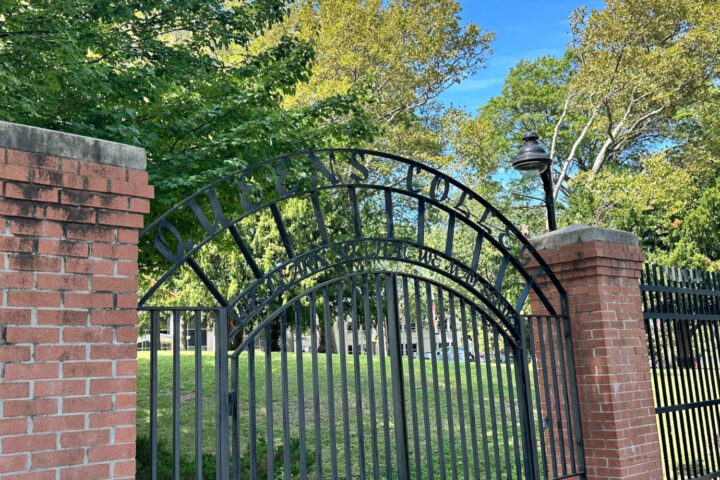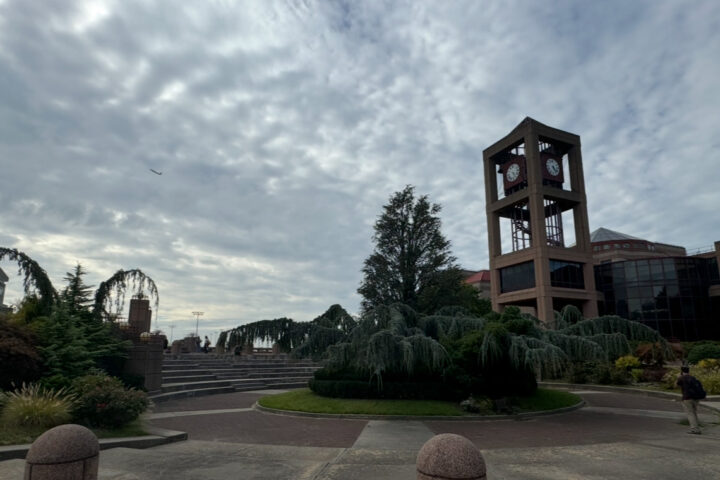Dissatisfaction with the scheduling of academic senate meetings and the apparent split between the current student association and those who favor participatory budgeting were evident at the most recent meeting of the academic senate. Only about 30 people were present in the 200-person lecture hall. The academic senate, which is comprised of 60 senators–40 of whom are full time faculty and 20 of whom are students– met on Thursday afternoon to discuss issues of concern to the college community. But more than half of the student senators were unable to attend because the meeting was held during class time.
Academic senator Victor Young took to the microphone and spoke in favor of participatory budgeting, which he said “aims to reform government structures.” He has been part of the push for participatory budgeting for more than a year and a half and says he joined the academic senate to give the student body a voice of their own instead of that of “career politicians.” In the past the sitting student government has worked with the participatory budgeting group. In participatory budgeting the college (or the student government) sets aside a portion of its budget and lets students vote on how it will be spent.
Student body President Japneet Singh at first declined to comment on the reasons for the association’s apparent split with the participatory budgeting supporters. But when questioned further, he said he wanted students to participate directly in government affairs, before quickly changing the subject to the current student government’s push to bring color printing, charging stations, and better Wifi to the campus.
Yair Koenig, an academic senator who represents the Adult Collegiate Education students on campus, criticized the way academic senate meetings are scheduled. ACE is an accelerated bachelor’s degree program for students 25 years old and older who have a high school diploma or GED. Koenig ran unopposed for his position, which considers only votes cast by ACE students; he won with only seven votes cast. Koenig said he has never been to an academic senate meeting, not because he doesn’t want to, but because the meetings are scheduled during class hours. Though he did not seem upset about his inability to attend the meetings, he said, “I don’t think that most people in school take the student government seriously.”
Young said “this government kind of sucks, and they just annoy us and they don’t do anything for the rest of the year. They don’t actually consult us, we don’t really like the decisions that they’re making, and it’s kind of difficult to get in there and have a say in what’s happening with school resources.”
One sign of the student government’s lack of agency could be its failure to change the meeting times so that more of its representatives can attend.
For many students at Queens College, their only direct access to their student government comes when they are harassed to vote every spring. The sad fact is that most students don’t know what the academic senate is or does, don’t know which students sit on it, and are unaware that these elected officers decide matters such as specific tuition hikes and who gets chosen for leadership offices. The goings-on of the student government seem to take place behind partially closed doors, and students should be curious to find out what’s going on.














